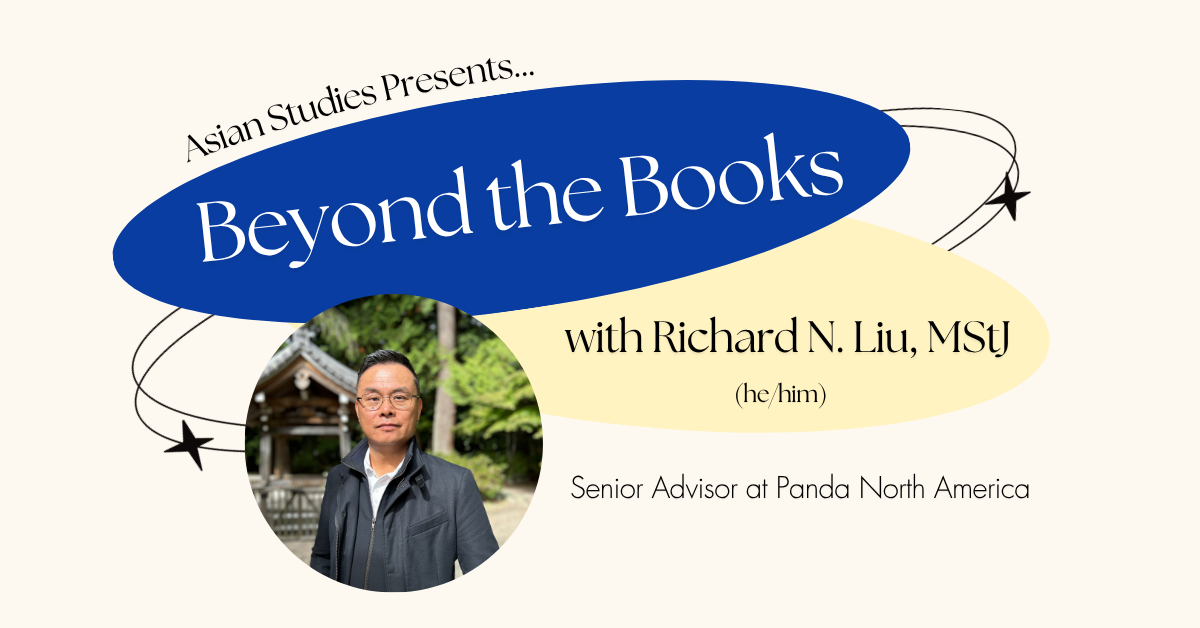Interested in what you can do with a degree in Asian Studies? In our Alumni Spotlight Interview Series, we ask our alumni about their career paths, how they became interested in Asian Studies and for any advice they would give to current students. This interview features Nabila Pirani, UBC Asian Studies BA’09 (Asian Language and Culture).
![Nabila[1]](https://asia.ubc.ca/wp-content/uploads/sites/18/2014/02/Nabila1-225x300.jpg)
![Nabila[1]](https://asia.ubc.ca/wp-content/uploads/sites/18/2014/02/Nabila1-225x300.jpg)
Could you go into some detail about your career path until now?
I’m currently a 1L law student at the University of Toronto, with an M.A in Middle Eastern, South Asian, and African Studies from Columbia University (2011), and a double major in Political Science and Asian Language & Culture from UBC (2009).
Between my M.A and the start of law school, I was a Post-Graduate Research Fellow at the Asia Pacific Foundation of Canada in Vancouver. Both my education and work, thus far, have been focused on the South Asian context. After graduation from UofT Law, I hope to use my India expertise to create a niche for myself at the intersection of trade and business law, one that would allow me to provide contextual and legal expertise to Canadian firms looking to do business in the Indian market.
How did you get your first job after graduating?
I had heard about the Asia Pacific Foundation of Canada while reading an article, and was struck by the type of work that it was doing (the fact that it was in Vancouver was an added bonus!). Excited by the prospects of working for the organization, I arranged a couple of meetings while I was home for the holidays. Soon after, I applied for the Post-Graduate Research Fellowship, and was thrilled upon receiving it. I moved back to Vancouver after finishing my M.A and was lucky enough to do some really interesting work on Canada’s trade and business relations with Asia.
How has an Asian Studies degree helped you in your endeavors?
I don’t know where to start! On a personal level, studying India as a person of Indian heritage has been a fascinating experience. I was born in Canada, and so my initial perception of India was very romanticized. Through my study of the region, I have come to appreciate India’s nuances – its foibles and its strengths – and its sheer diversity. My perception of India today is fundamentally different from what it used to be.
Furthermore, as the focal point of my academic and professional endeavors, the study of the region has given me a better appreciation of the way in which our world is changing. It has allowed me to develop an appreciation for different cultures, political systems, and modes of thought. In today’s ever-increasingly globalized world, this sort of an appreciation is crucial. In addition, knowing a few extra languages – which I think are doors to other worlds and cultures – never hurts.
What can students/recent graduates do to get a foot in your industry?
I may not be the right person to answer this question, as I’m in the midst of getting my own foot in the door. That said, experience has shown me the importance of networking. By this, I don’t mean that one should talk to as many people as possible. In my opinion, networking is most effective when one has taken the time to build a strong relationship.
Do you have any other advice that you would like to impart to students/recent graduates?
A few things:
1) Be the very best that you can be: Today’s world is hyper-competitive. Jobs are scarcer than they used to be, and there are more people competing for them. It’s crucial to be at your best.
2) Know yourself: This may seem clichéd – and to some extent it is. The reason I say this, however, is that it’s necessary to know what you bring to the table: what your strengths are, what your weaknesses are, how you can distinguish yourself from others around you. It’s always easier to sell yourself – whether it’s for a job or for a PhD program – when you know what you’re selling.
3) Be open to different opportunities: In my conversations with graduating students, I’ve noticed a worrying trend, one in which students get fixated on their ‘ideal position’ and ignore other fabulous opportunities that may be available to them. My suggestion is, don’t get caught up in this ‘ideal position’ rhetoric. Be open to different opportunities. Remember: you don’t have to stay in one position or field for the rest of your life. Most, if not every, positions or fields that you find yourself in will enable you to build an impressive set of skills. These skills will help you get to your ideal position eventually.
What is one of your memorable moments abroad?
I spent a summer in the Indian city of Lucknow a few years ago. While the experience in itself was amazing, the highlight of the trip was spending all of mango season in India’s mango belt. Eating mangoes since has never been the same.


